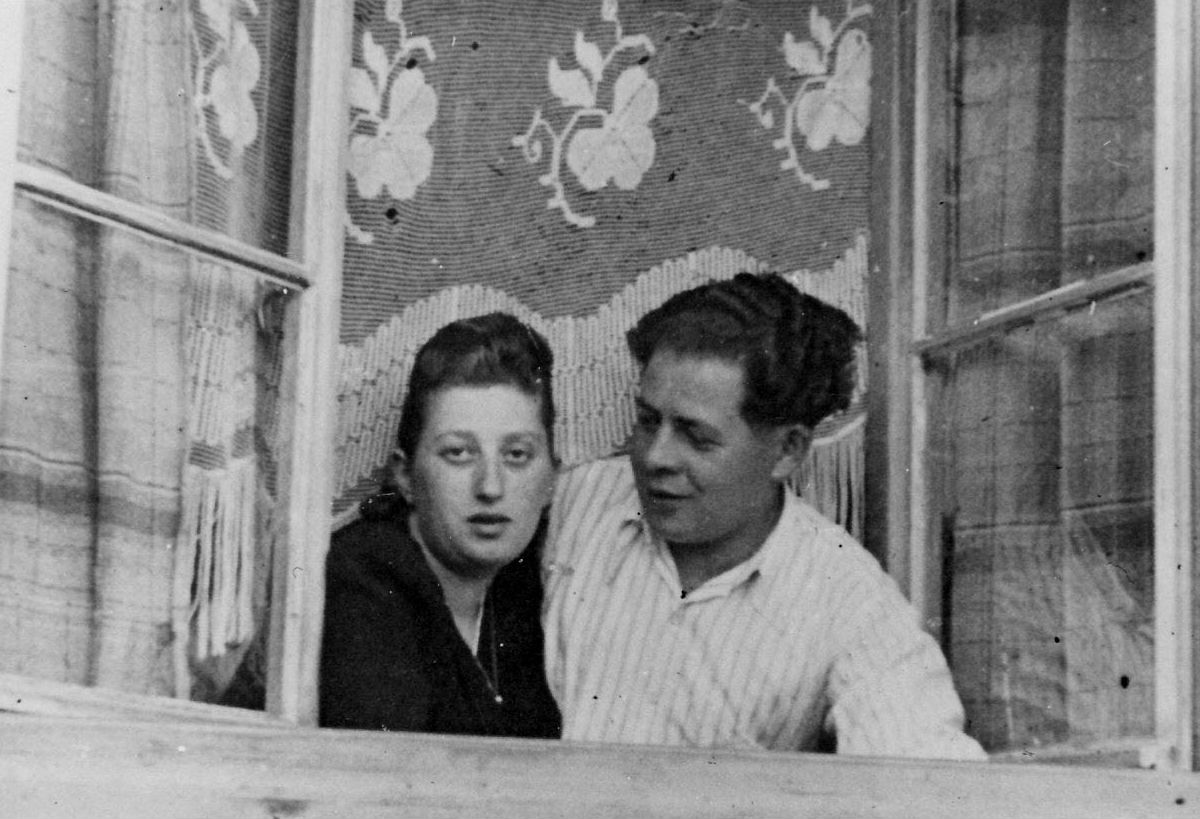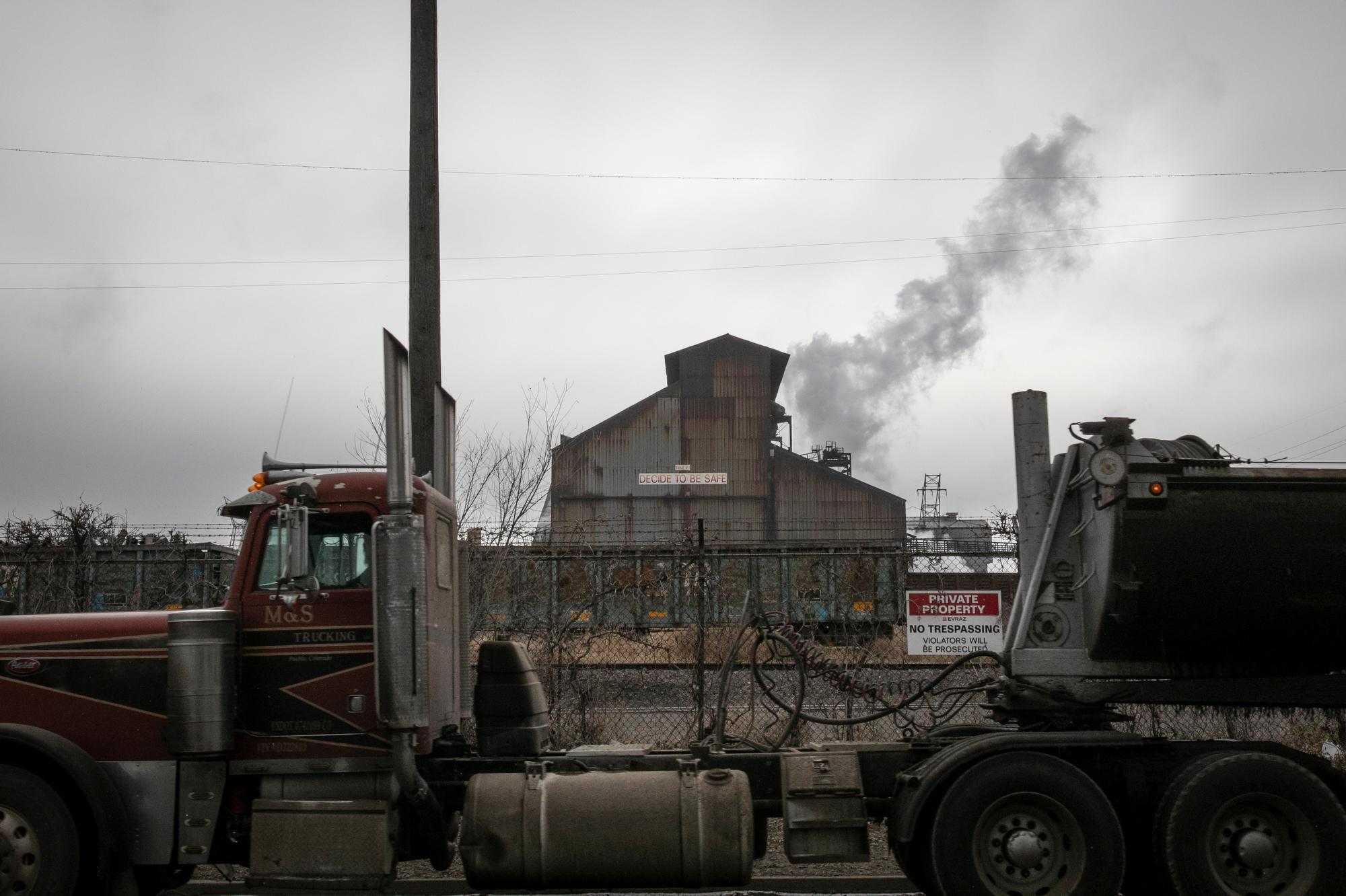
At 95, Fanny Starr is still haunted by a smell. It's the stench of bodies and human hair burning at the Nazi concentration camp Auschwitz.
She was about 19 or 20 when she was at Auschwitz and remembers lying in a field, under a reddish sky, and feeling ashes fall on her skin.
Starr lives in Denver. But she was born in Lodz, Poland in 1922. Her parents owned a grocery store then got into the tannery business, which Starr says was very profitable for them. One of five children, she says she led a very active life in Lodz and belonged to a Jewish youth group.
In 1939, after the Nazis invaded Poland, she and her family where forced into the Lodz Ghetto. She would spend about five years there before being transported to Auschwitz, Ravensbruck, Mühlhausen and Bergen-Belson.
When British troops liberated the Bergen-Belson camp on April 15, 1945, Starr says she was too ill to understand what was happening: "I didn't know I was liberated. The Red Cross came and [a woman] said, 'You are free.' Who cared? I was laying in bed, halfway dead."
During the war, she lost her mother, father and two siblings, as well as uncles, aunts and cousins. "[There were] just five of us left," Starr says.

Following liberation, Starr spent years in displaced persons camps, which is where she met her husband, Zesa, and gave birth to her first child. She came to the United States in 1951, eventually relocating to Denver.
Starr spoke with Colorado Matters host Ryan Warner.
Excerpts from the conversation are below.
On what life was like in the Lodz Ghetto:
"The life in the ghetto was no life. You went to work then came home. It was confined. I worked in the ghetto, in a shop for tailoring. After that, I work in another place. I made shoes from dry straw for the military. And we all had bleeding hands because the straw was dry and stiff. And after that, I worked in a shop where they brought all of clothing [that people were stripped of at] Auschwitz. We had little scissors and little knives to take the garments apart, take the gold and diamonds, and all denominations of money from the whole world. [People hid valuables] in the shoulders, every place. We put the diamonds in big jars. The gold pieces went in big, huge wooden barrels."
On what she remembers about the crowded train ride to Auschwitz:
"There was crying and screaming. It was in September. It was bitter cold. From the train, we went to a big warehouse and then stripped and they gave you the striped dress. No underwear. Nothing. Just this dress. We didn't know or care [at that point]. We just lost our will to live."
On the time she almost got her hands on a newspaper:
"At Mühlhausen, I went to the ladies room. You didn't go on your own, God forbid. I went with an SS lady and a German shepherd. I went into the ladies room and I saw a newspaper. When I picked up the paper, it made noise. She opened the door, dragged me out and beat me inhumanly. They probably didn't want me to find out any news. I was not looking for news. I was looking for the day and the year. We didn't know what year or what day, nothing. We were like unwanted people on this earth."
On meeting her husband and restarting her life in a displaced persons camp:
"I was a ball of fire, singing and dancing. It appealed to him and that was it; we fell in love. I got married in the camp. Four guys had four sticks [and they held up a tallit as our chuppah, a canopy under which Jewish wedding ceremonies are performed] ... He was my first love."
On how the Holocaust affected her relationship with Judaism:
"I was very mad at my god. We were the chosen people. Why did he allow this? I'm still mad at him. I've still not forgiven. I became an atheist [in the camps]. After that, I got married and had children. My husband [re-embraced Judaism for our children]. He was more religious."
Related:









